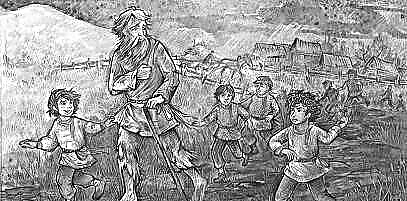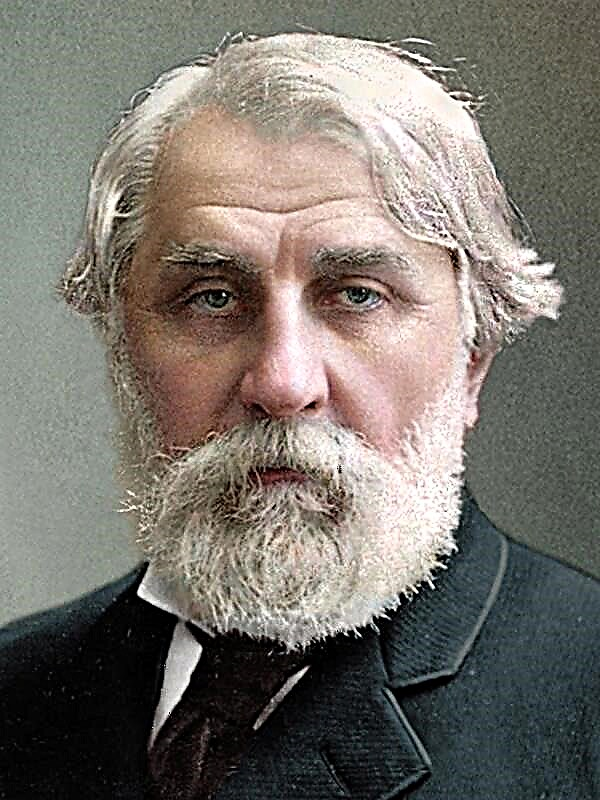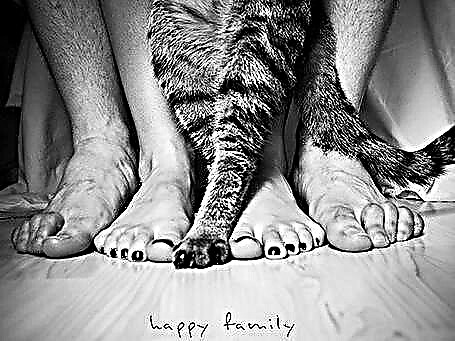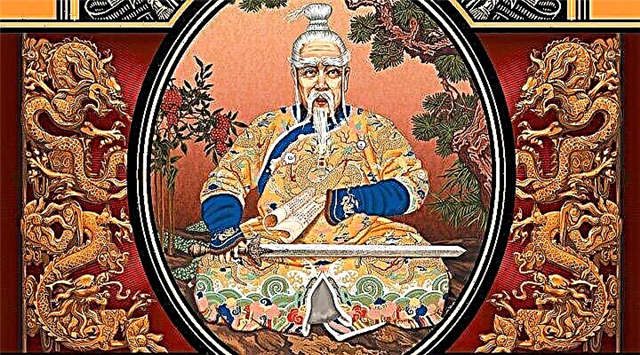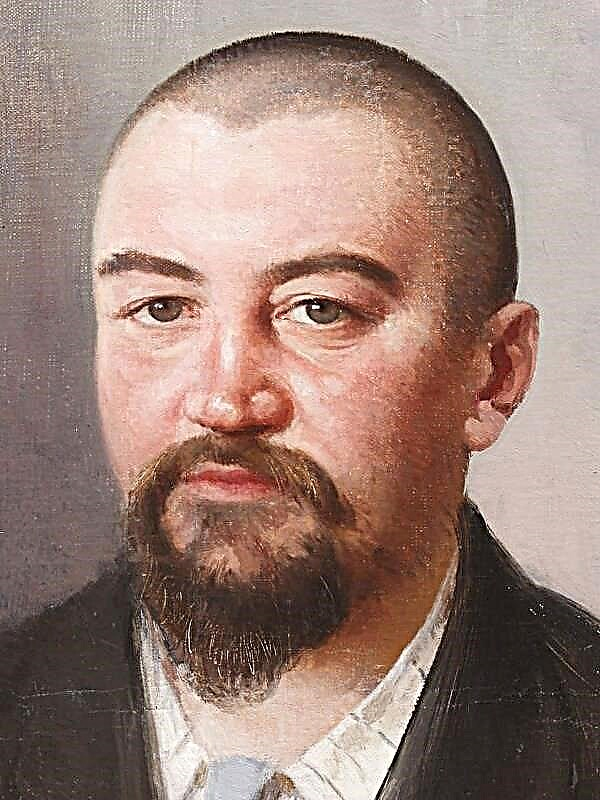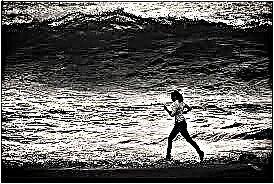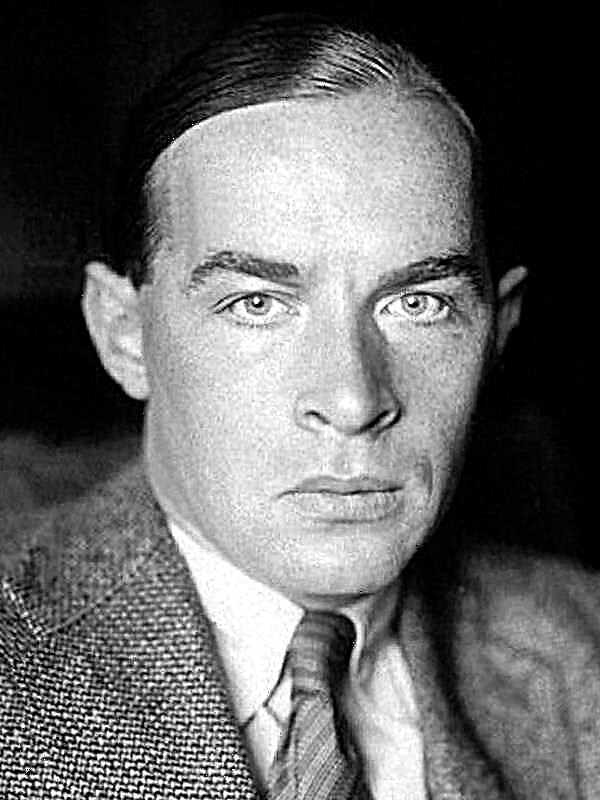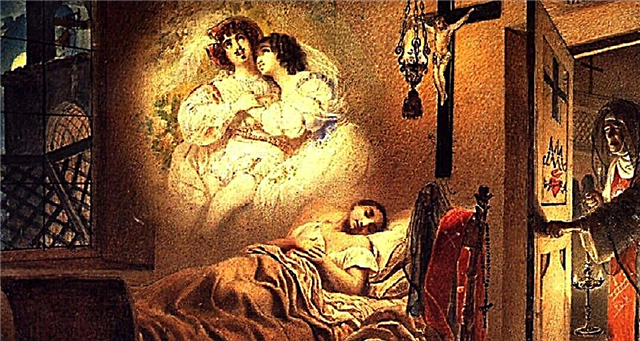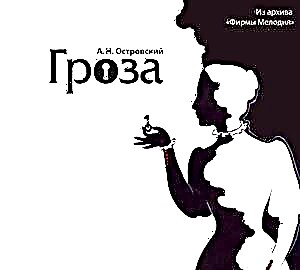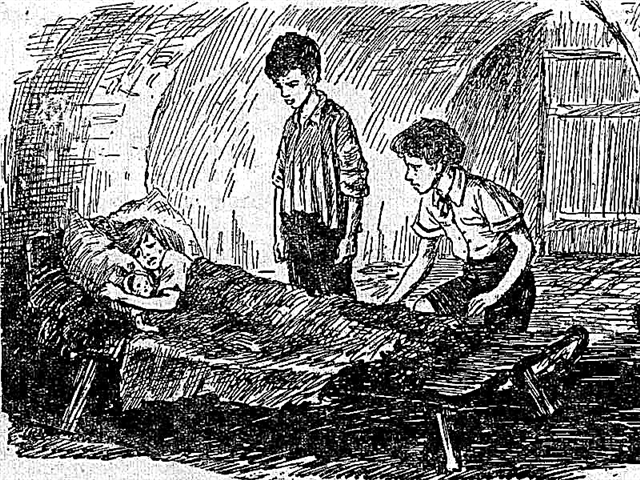The action takes place in the modern writer Silesia.
Alfred Lot appears on the Krause estate, he would like to see the engineer. Frau Krause - a noisy peasant woman, appreciating the modest appearance and rustic clothes of a stranger, takes him for a supplicant and drives him away. Hoffman pleads with the mother-in-law, he recognizes in the arrived friend of the gymnasium time, whom he had not seen for ten years. He is pleased to meet, gladly indulges in memories of the past. What naive idealists they were, reveled in high thoughts about the reconstruction of the world, universal brotherhood. And these ridiculous plans to go to America, buy land and organize a small colony there, where life would be based on different principles. Hoffman and Lot recall the friends of youth, their fates were different in different ways, others are no longer in the world. Looking around the situation at home, Lot notes the combination of newfangledness and peasant taste, everything here speaks of prosperity. Hoffmann has a sleek appearance, he is beautifully dressed and clearly pleased with himself and his life.
Lot tells about himself: he was convicted innocently, attributing to participation in illegal political activities, he spent two years in prison, where he wrote his first book on economic issues, then went to America, now works in the newspaper.
In fact, there was a good time, recalls Hoffmann, and how much communication with friends gave him, he owes a great deal to him by his breadth of views, freedom from prejudice. But let everything in the world go its own natural way, do not try to break through the wall with your forehead. Hoffmann calls himself a supporter of practical actions, and not abstract theories that have nothing to do with reality. Of course, he sympathizes with the poor, but a change in their fate must occur from above.
Hoffman is full of complacency - he is now a person with a position, successfully engaged in entrepreneurship. The father-in-law lives on the estate because a pregnant wife needs a calm environment and clean air. Lot already heard about a grandiose scam when Hoffmann managed to get the exclusive right to all coal mined in mines. In response to Lot's request for money, Hoffman hands him a check for two hundred marks, he is always ready to provide service to an old friend.
Lot gets acquainted with the sister-in-law of Hoffmann Elena. The girl does not consider it necessary to hide from the guest how hateful this village and this house are to her. The coal found here in an instant turned the poor peasants into rich. So her family also found a fortune. And these miners are sullen, fierce people who cause fear. Lot admits that he came just for them - it is necessary to find and eliminate the reasons that make these people so gloomy and embittered.
Dinner impresses Lot with the richness of the table setting and the sophistication of food and drinks. The frayed Frau Krause in silk and expensive jewelry does not miss the chance to boast that for the sake of chic they do not stand up to the price. The son of the neighbors, the nephew of Frau Krause Wilhelm Kaal, an empty and stupid young man, from idleness engaged in hunting larks and pigeons, is invited to dinner. He is considered the bridegroom of Helen, but she can not stand him. The general amazement is that Lot refuses alcohol, he is a convinced teetotaler, he talks a lot and extensively about the dangers of alcohol and the harmfulness of drunkenness, not noticing the confusion of those gathered at the table.
In the morning, the drunk Krause returns from the inn, clearly pestering his daughter. Elena is struggling to break free. She seeks to communicate with Lot, who seems to her an amazing, unusual person. Life here is wretched, no food for the mind, she explains to the guest. Her only joy is books, but Lot scolds her beloved Werther, calling him a stupid book for weak people, inherits from him and Ibsen and Zola, whom he calls "inevitable evil." And in the wilderness of the village there are many charms. Lot never strove for personal well-being, his goal is to fight for the good of progress, poverty and disease, slavery and meanness must disappear, these ridiculous social relations must be changed. Elena listens with bated breath, such speeches startle her, but they find a response in her soul.
Frau Krause, speaking as a champion of morality, intends to drive away the worker, who spent the night with the coachman. Elena stands up for her defense, accusing her stepmother of hypocrisy - as a rule, Kaal leaves her bedroom only in the morning.
Hoffmann talks with Dr. Schimmelpfenning, who paid a visit to his wife. He fears for the life of the future, the child after the loss of the firstborn. The doctor advises him to immediately separate the baby from his mother, he must live separately from her, and upbringing can be entrusted to his sister-in-law. Hoffman agrees, he already bought a suitable house.
Elena is on the verge of hysteria. Father is a drunkard, a lustful animal. The stepmother is a lecher, a procurator, mediating between her lover and her. It is impossible to continue to endure these abominations, you must run away from home or commit suicide. She can not console herself with vodka, like a sister. Hoffman affectionately persuades the girl, it seems, between them a close relationship. Both of them are little suited to this peasant environment, says Hoffman, they are made for each other. Soon they will begin to live separately, she will replace the mother with the child. In the fact that Elena does not respond to the prospects outlined by him, Hoffmann sees Lot's corrupting influence and calls to beware of him, he is a dreamer, a master of fogging brains. And in general, the very communication with such a person compromises.
Hoffman is trying to discredit Lot in the eyes of Elena, asking about his bride. Lot explains: the engagement was upset when he went to prison. And in general, he probably is not suitable for family life, because he seeks to give himself entirely to the struggle. Lot sets out the reason for the arrival - he intends to study the situation of the local miners. He asks Hoffmann for permission to inspect the mines in order to get acquainted with the production. He is indignant: why undermine the foundations in the place where one of your friends found happiness and firmly stood on his feet? He agrees to pay all expenses for the trip and even provide material support in the election campaign of the party to which Lot belongs. But he firmly stands his ground, friends quarrel, and Lot tears the cashier’s check written before Hoffmann.
After a quarter of an hour, Hoffman apologizes for his temper and begs Lot to stay. Elena is afraid that Lot, without which she no longer thinks of her further existence, will leave, she will confess his love to him. It seems to Lot that he finally found the one he had been looking for all these years. He is surprised by some oddities in Elena’s behavior, but she is simply afraid that when he finds out the truth about their family, he will push him away, drive her away.
Hoffman's wife begins giving birth. Lot talks with the doctor who is in the house about this. Schimmelpfenning - another of his former friends, who also cheated on himself, departed from the principles that they professed in their youth. Returning, in his words, to the mousetrap, he makes money. He dreams, having achieved material independence, to finally engage in scientific work. And the situation here is terrible - drunkenness, gluttony, incest, and, as a result, widespread degeneration. He wonders how Lot lived these years. Did you get married? I remember that he dreamed of a sort of vigorous woman with healthy blood in his veins. Upon learning that Lot fell in love with Elena and intends to marry her, the doctor considers it his duty to clarify the situation to him. This is a family of alcoholics, and the three-year-old son of Hoffmann died from alcoholism. His wife drinks to a loss of consciousness. The head of the family does not get out of the tavern at all. It is a pity, of course, that Elena was sick of this atmosphere, but Lot always considered it important to give birth to physically and spiritually healthy offspring, and here hereditary vices may appear. Yes, and Hoffman spoiled the girl's reputation.
Lot decides to leave the house immediately, move to the doctor. He leaves Elena a farewell letter. Hoffman can be calm, tomorrow Lot will be far from these places.
In the house of clutter, the baby was born dead. After reading the letter, Elena becomes desperate, she grabs a hunting knife hanging on the wall and takes her own life. At the same time, a song is heard that the drunk father returning home sings.


